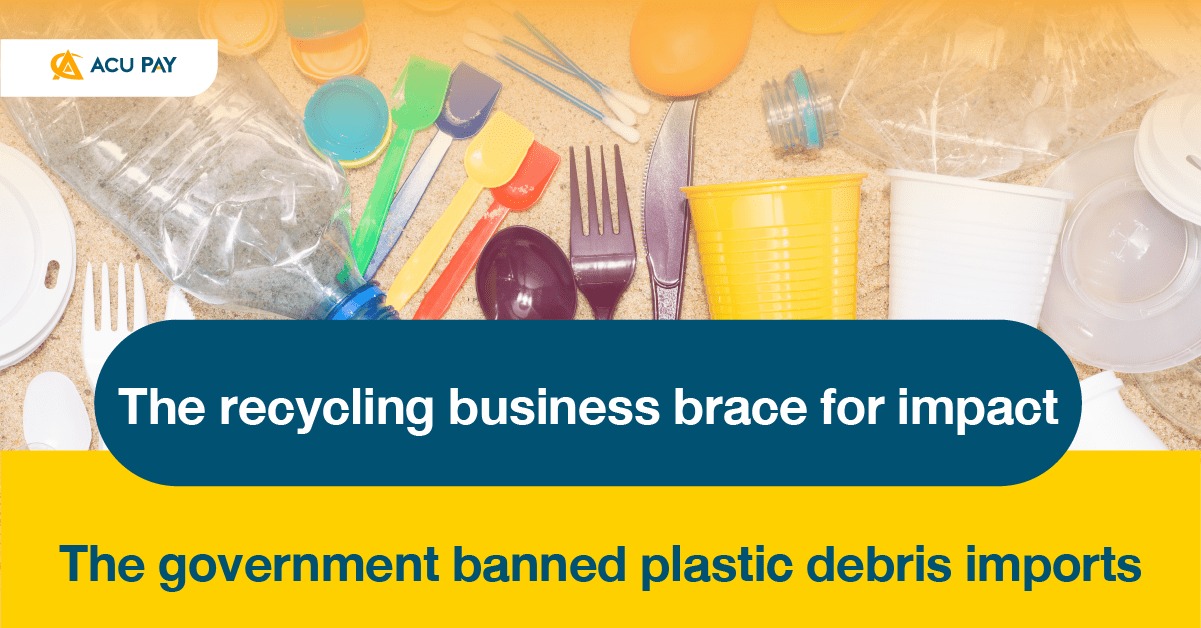

In February 2023 when the Cabinet resolved to ban imports of plastic debris from overseas markets after 2025, the government will continue to ease the import of plastic debris in duty-free zones, especially industrial plants that use plastic debris as raw materials for export as specified by the government. Including the import of plastic debris in general areas in case there is no domestic plastic debris or insufficient amount to be used as raw materials only during 2023 and 2024 before all imports of plastic debris are lifted in 2025.
Nevertheless, the import ban on plastic debris from overseas may affect plastic recycling operators as recycling plants will purchase domestic plastic waste and import plastic debris to produce recycled plastic pellets. In 2022, Thailand’s imports of plastic increased by 13% from 179,000 tons the previous year, accounting for about 25% of total plastic waste.
Krungthai COMPASS expects that the impact of the import ban on plastic debris from abroad and falling oil prices will result in the purchase price of plastic waste at recycling plants in 2024 ranging from 14.8 – 15.8 baht per kilogram or 10 – 17 percent higher than the purchase price of plastic waste in 2022. The higher purchasing price of plastic waste will be positive for the recycled junk shop businesses that sell the plastic waste to the recycling business, but the recycling business is subject to a 10% decreased income.
Nowadays, Thailand generates around 2-2.5 million tons of plastic waste per year, but only 20 percent or about 500,000 tons of plastic waste is recycled in the country, which has a low recycling rate compared to other countries. If Thailand has an efficient plastic waste management system, it is expected that domestic plastic waste will be able to compensate for around 1.2-1.4 trillion baht per year for imports. The measures to ban imports of plastic waste may have a positive impact on domestic plastic waste recycling, such as PET, PE, and PP of more than 1.5-2 million tons.
In addition, if Thai entrepreneurs reuse 100% of plastic waste by 2027, around 1.5 million tons per year according to the government’s target, will reduce greenhouse gas emissions by as much as 1.55 million tons of carbon dioxide per year. This is comparable to 130 million trees, calculated as the forest area of 1.3 million rai or 1.3 times the area of Bangkok.
Krungthai COMPASS recommends that plastic recycling operators need to plan and ensure adequate domestic supply of plastic waste, especially for large businesses that rely on plastic waste imports. In addition, the company should start designing and developing plastic products that can be recycled 100%. In this regard, the government should play an important role in promoting public waste separation and supporting the budget for recycling plastic waste.
Thanks to the information from Prachachat